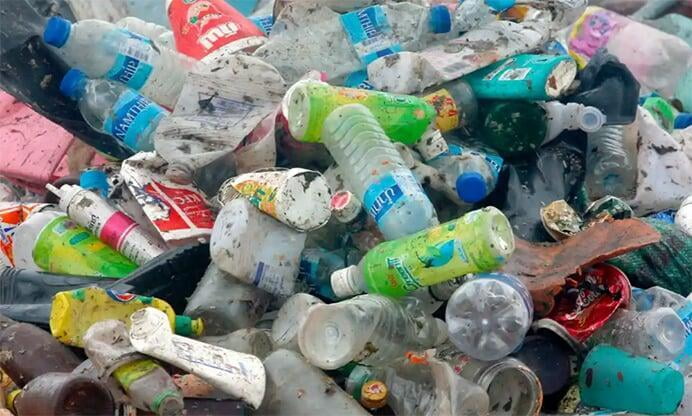Scientists have discovered microbes in the Alps and Arctic that can digest plastic at low temperatures, which could be a valuable tool for recycling.
Many microorganisms that can do this have been discovered, but they can usually only operate at temperatures above 30°°
Scientists at the Swiss Federal Institute WSL have discovered microorganisms that can perform this operation at 15°C, which could lead to a breakthrough in microbial recycling. Their findings were published in the journal Frontiers in Microbiology.

Dr. Joel Rüthi from WSL and colleagues collected 19 bacterial strains and 15 fungal species in Greenland, Svalbard and Switzerland that grew on freely placed or intentionally buried plastic products that had been kept underground for a year. They let these microorganisms grow as single-strain cultures in the lab at 15°
The results showed that the strains belonged to 13 genera of the phylum Actinomycetes and Aspergillus, and the fungi belonged to 10 genera of the phylum Ascomycetes and Trichoderma.
The plastics tested included non-biodegradable polyethylene (PE) and biodegradable polyurethane (PUR), as well as two commercially available biodegradable blends of polybutylene terephthalate (PBAT) and polylactic acid (PLA).
Even after 126 days of incubation on these plastics, all strains were unable to digest PE. However, 19 strains (56%), including 11 fungi and 8 bacteria, were able to digest PUR at 15°
Dr. Joel Rüthi said, "Here, we show that novel microbial taxa obtained from the 'plastosphere' of alpine and Arctic soils are able to break down biodegradable plastics at 15°C. These organisms could help reduce the cost and environmental burden of the plastic enzymatic recycling process."
Surprisingly, he said, a large percentage of the strains tested were able to degrade at least one of the plastics tested.
The scientists also tested the best-performing fungi and found them to be two uncharacterized fungal species in the genera neodevriesia and lachnellula, which could digest all of the tested plastics except PE.
Although plastics have only been widely used since the 1950s, microorganisms can degrade polymers because they resemble certain structures found in plant cells.
Dr. Beat Frey, one of the study authors, explained, "Microorganisms have been shown to produce a variety of polymer-degrading enzymes that are involved in the breakdown of plant cell walls. In particular, plant pathogenic fungi are often reported to biodegrade polyesters because of their ability to produce keratinases, which target plastic polymers because of their similarity to plant polymer keratin."
The scientists have only tested the microorganism at one temperature, so they have not yet found the most suitable microorganism to use. Nevertheless, they say it works well between 4°C and 20°C.
Dr. Beat Frey said, "The next major challenge will be to identify the plastic degrading enzymes produced by the microbial strains and to optimize the process of obtaining large amounts of protein. In addition, further modifications to the enzyme may be required to optimize properties such as protein stability."

